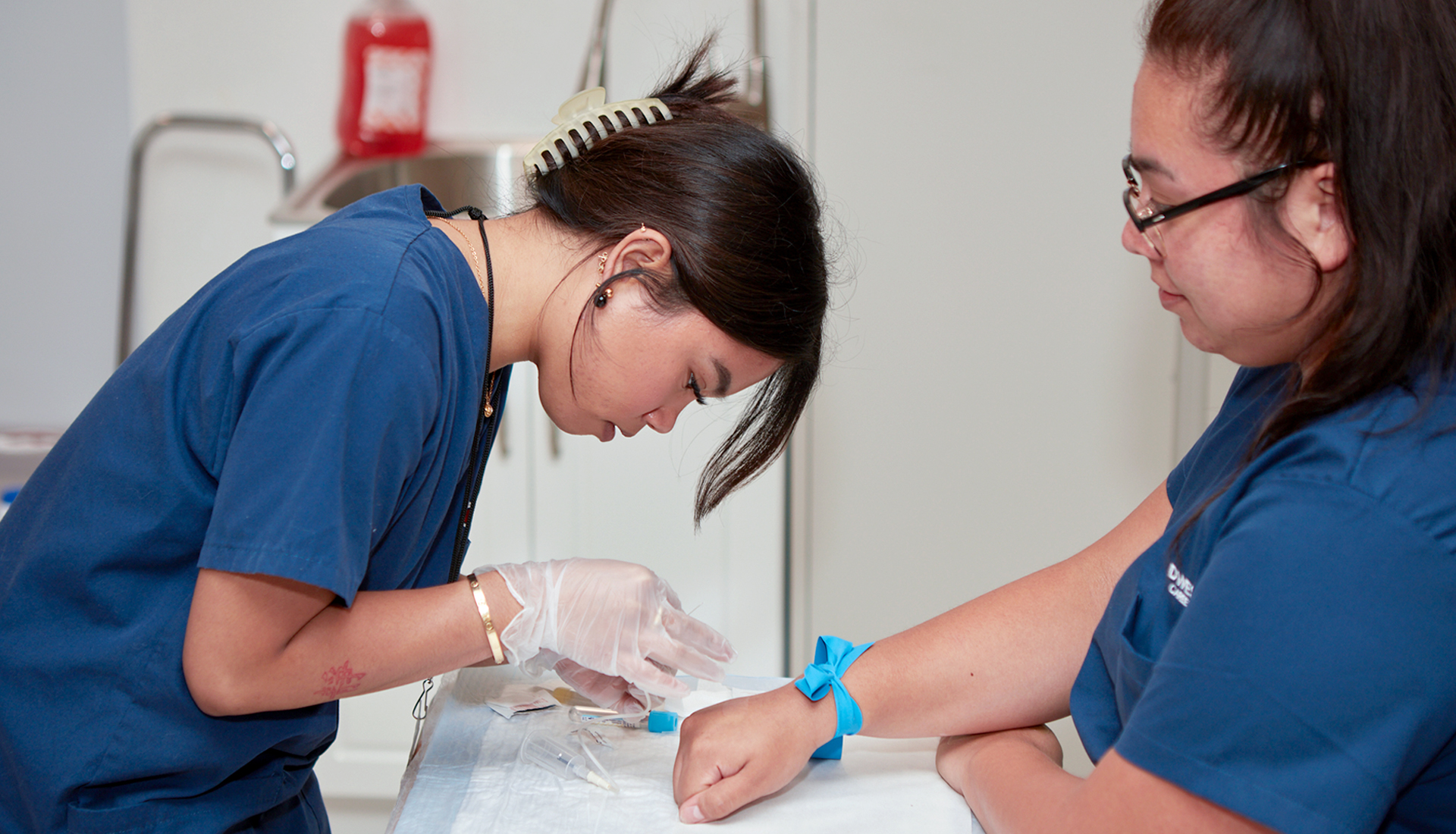Professional Northeast Medical Institute Phlebotomy Classes Stamford: Get Certified
Professional Northeast Medical Institute Phlebotomy Classes Stamford: Get Certified
Blog Article
Vital Factors to Think About When Choosing one of the most Appropriate Medical College Curriculum for You
Picking the most fitting medical institution educational program is a critical choice that can greatly affect your academic trip and future profession course. As aiming clinical professionals, the option of curriculum ought to line up with your individual discovering style and career desires.
Personal Discovering Style

Medical schools that provide varied training techniques and resources can suit different finding out designs, promoting a dynamic and comprehensive educational environment. Inevitably, understanding personal knowing choices encourages trainees to make informed choices concerning their clinical education, establishing a strong structure for their future occupations in medical care.
Career Objectives Placement

Additionally, lining up profession goals with the medical college curriculum can also improve inspiration and engagement throughout the academic journey. When students see the straight relevance of their coursework to their future career, they are more probable to remain focused and dedicated to their research studies. For that reason, when selecting a medical school curriculum, it is essential to very carefully think about exactly how well it straightens with one's career goals to ensure a successful and satisfying specialist path.
Training Methods
Taking into consideration the positioning of career purposes with the selected medical institution educational program, an examination of the mentor approaches used becomes critical fit the discovering experience. The efficiency of a clinical institution curriculum heavily counts on the teaching methodologies used by the establishment. Various teaching techniques, such as talks, small team conversations, problem-based discovering, simulation-based training, and hands-on scientific experience, can considerably influence just how well trainees grasp and preserve info.
Lectures are a standard however still generally used technique for delivering web content to a huge group of pupils successfully. Small seminar foster partnership, important thinking, and interaction skills amongst pupils. Problem-based learning encourages active engagement, self-directed discovering, and problem-solving capacities. Simulation-based training allows trainees to exercise clinical skills in a regulated environment before connecting with real people. Hands-on clinical experience uses a direct understanding of individual treatment and clinical practices.
When selecting a medical school curriculum, aiming students ought to think about the teaching methodologies utilized to ensure that their discovering preferences and staminas straighten with the academic method of the institution.
Curriculum Adaptability
When evaluating medical college programs, assessing the degree of educational program flexibility is necessary for potential pupils seeking a tailored instructional experience. Curriculum flexibility describes the level to which pupils can personalize their discovering courses within the medical college educational program. A curriculum that provides versatility permits pupils to seek their interests, focus on locations where they require a lot more support, and involve in learning experiences that align with their profession goals.

Possible clinical trainees ought to think about how a medical school's curriculum flexibility aligns with their knowing preferences, career aspirations, and individual objectives. By selecting a program that uses the right balance of structure and flexibility, pupils can maximize their academic experience and prepare themselves for successful careers in medication.
Clinical Exposure Opportunities
Discovering the useful application of clinical knowledge, scientific direct exposure opportunities play a critical role fit a comprehensive clinical education and learning. These chances provide pupils with vital hands-on experience in real healthcare setups, permitting them to link the gap in between theory and technique. When considering medical institution educational program, the quality you can check here and quantity of medical direct exposure have to be thoroughly examined.
Reliable professional direct exposure should provide a diverse array of experiences across various specialties, guaranteeing that trainees are revealed to various clinical circumstances and person demographics. Exposure to outpatient centers, inpatient wards, medical theaters, and emergency situation divisions can assist trainees create a well-shaped understanding of different facets of medical care delivery. Furthermore, possibilities for community-based treatment and interactions with underserved populations can promote a much deeper gratitude for the social components of wellness.
Furthermore, the presence of supportive professors and advisors throughout these scientific experiences can substantially improve the discovering procedure. Professors support and useful comments can help students assess their professional encounters, identify locations for enhancement, and improve their decision-making capacities and scientific skills (Northeast Medical click now Institute CNA Classes Near me Stamford). Overall, durable scientific exposure possibilities are crucial for preparing future medical professionals law and criminology to provide quality client care efficiently
Verdict
In final thought, when selecting a clinical institution curriculum, it is necessary to consider your individual knowing style, positioning with career goals, instructing approaches, educational program adaptability, and scientific exposure possibilities. These factors play a crucial function in determining one of the most appropriate program for your specialist and educational development. See to it to completely evaluate each facet to make a notified choice that will certainly best support your development in the medical area.
Comprehending one's personal understanding design is essential when picking a medical institution educational program. By recognizing one's learning design early on, aiming medical trainees can strategically pick a curriculum that caters to their toughness, inevitably enhancing their knowing experience and academic success.
When reviewing clinical college programs, assessing the extent of educational program adaptability is crucial for prospective students seeking a tailored educational experience. Curriculum versatility refers to the level to which trainees can customize their knowing paths within the clinical college curriculum.In verdict, when picking a clinical institution curriculum, it is important to consider your individual learning design, alignment with job objectives, instructing methodologies, educational program flexibility, and scientific direct exposure possibilities.
Report this page